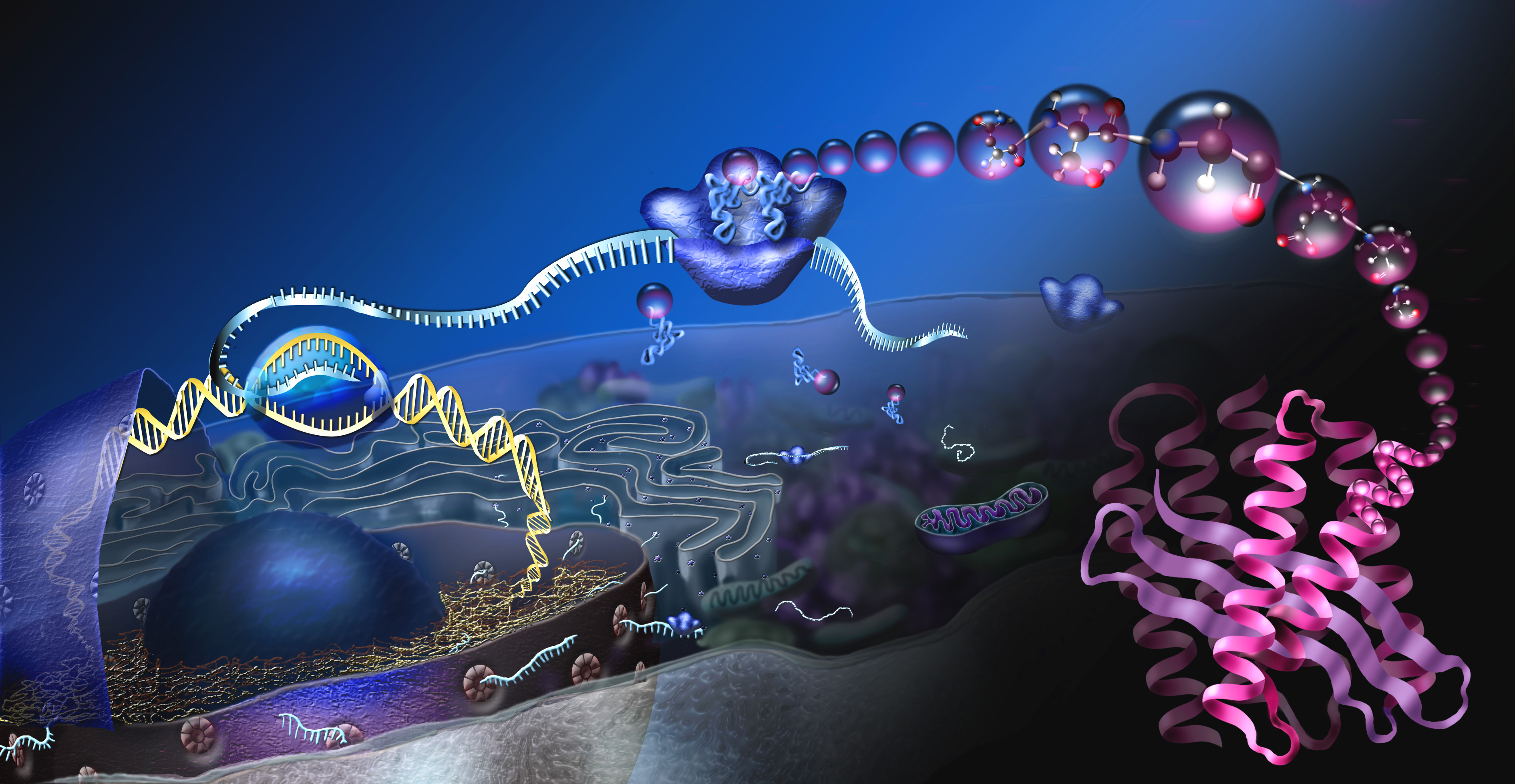Παρουσίαση/Προβολή

BIOLOGY II - GENETICS (S. 2025-2026)
(54724) - Α. Eliopoulos - Μ. Gazouli - Μ. Roubelakis - D. Sanoudou - T. Alissafi - Κ. Gkouskou - Ν. Lagopati - Κ. Pavlou
Περιγραφή Μαθήματος
The Genetics course focuses on Molecular Genetics and Human Genetics, examining the structure and function of genetic material in viruses, prokaryotes, and eukaryotes. It explores the evolution of genetic material over time, its behavior at the population level, and its role during development and differentiation. The course also covers techniques and technologies related to the handling and study of genetic material.
Content Summary:
- Introduction to Genetics.
- The human genome and the chromosomal basis of heredity.
- Euchromatin and heterochromatin, nucleosomes.
- Structure and function of the genome, gene expression.
- Homologous genes and developmental mechanisms.
- The mitochondrial genome.DNA replication, repair mechanisms, transcription.
- mRNA assembly and processing.
- Structure and function of tRNA, genetic code, translational function, structure and function of ribosomes.
- Mutagenesis: Types and mechanisms of mutations.
- Regulation of gene expression, Cis and trans-regulatory elements.
- Human molecular genetics.
- Physical basis of heredity.
- Genetic disease databases and use of Pubmed. The concept of allele.
- Types of gene inheritance: monogenic and polygenic inheritance.
- Epigenetic mechanisms of gene expression, genetic recombination, linked genes.
- Mapping and identification of genes associated with human diseases. Single-gene diseases and their molecular basis.
- Genetics of diseases with multifactorial inheritance.
- Gene interaction.
- Basic principles of population genetics, Hardy-Weinberg principle.
- Polymorphisms at the DNA level.
- Clinical cytogenetic and chromosomal atypia of autosomal and race chromosomes.
- Gene expression in specialized eukaryotic systems. DiseaDisease models: thalassemia,cystic fibrosis.
- Immunoglobulins and major histocompatibility complex.
- General about viruses, structure and life cycle of viruses.
- DNA and RNA viruses, oncogenic viruses, retroviruses.
- Cancer genetics and genomics.
- Genetic engineering, principles and applications.
- Gene expression estimation methods. Reverse genetics: successful applications.
- Gene transfer and expression in mammalian cells.
- Modern methodologies of molecular analysis of genetic diseases.
- Gene therapy of genetic diseases.
- Developmental genetics: growth disorders, malformations and congenital anomalies.
- Practical applications of Molecular Genetics.
- Prenatal and preimplantation diagnosis.
- Pharmacogenetics and pharmacogenomics.
- Nutritional genetics.
- Genetic counseling and bioethics.
Laboratory Exercises:
1. DNA Isolation and Polymerase Chain Reaction (PCR).
2. DNA electrophoresis – Genotyping
3. DNA Identification: Find the Killer
Ημερομηνία δημιουργίας
Τετάρτη 1 Φεβρουαρίου 2023
-
Περίγραμμα
Δεν υπάρχει περίγραμμα